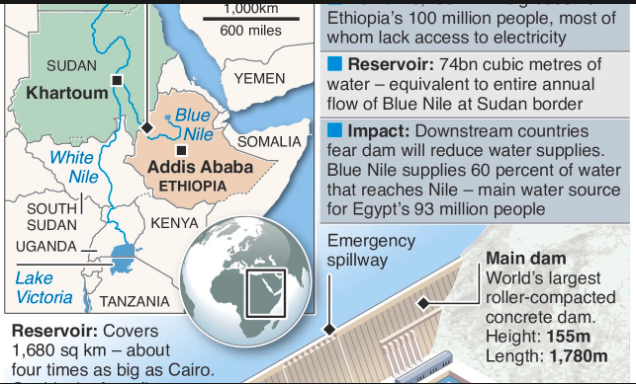|
Visiting villages in Ethiopia is a real treat. The countryside around Bahir Dar is beautiful. I get to see what a cow shed looks like, how they dry crops and bricks in the sun, everyday life and best of all the children. This day trip was to see the last palace built by Haile Selassie, Ethiopia's 225th and last emperor, serving from 1930 until his overthrow by the Marxist dictator Mengistu Haile Mariam in 1974. For more information on the Emperor see https://www.biography.com/political-figure/haile-selassie-i
0 Comments
It was a peaceful day in Bahir Dar on Wednesdays. It's a fasting day, and we could see the gathering of the mass believers to pray at church when we began our walk shortly after 6 a.m. This is a common site Fridays and Sundays as well. Fasting means nothing to eat until after 3 p.m. our time, that's 9 o'clock Ethiopian time (Sunrise starts the day at 0. Sunset starts the night at 0. Each occurs at what we call 6 a.m. and 6 p.m.). Even when the fast is broken, no meat or dairy is eaten. There are 55 days of fasting right before the Ethiopian Easter, and I think almost as many before the Ethiopian Christmas. I try to observe vegetarian most days, but I don't fast. There isn't much dairy to be had here anyway, but I assume the restriction applies to eggs, which I count on every day. For more information on religion see http://www.ethiopiantreasures.co.uk/pages/religion.htm. It was not so peaceful in other parts of Ethiopia today. There were 200 arrested and 23 killed in and around Addis Ababa due to ethnic clashes. There is a real tension between tolerance of opposition groups and keeping things peaceful. That's the case anywhere. This continues to shape up as an interesting and important year for Ethiopia. I had a conference call cancelled because the internet may be down in parts of where one participant is. See https://www.aljazeera.com/news/2018/09/ethiopia-thousands-protest-ethnic-violence-killed-23-180917141138078.html
On June 22, 2019, the president of the Amhara State and his advisor were assassinated in the president's office here in Bahir Dar. The Ethiopian government has characterized this assassination as a coup d'etat. A court hearing on October 8, where the Court denied the government's request for more time to investigate the case the government is trying to bring against Brigadier General Tefera Mamo, commander of the region's special forces, and Colonel Alebel Amare. This lead to peaceful protests on October 8. See the story at https://borkena.com/2019/10/08/ethiopia-brigadier-general-tefera-mamo-et-al-case/ On October 14, Brigadier General Tefera Mamo and Colonel Alebel Amare were released on a bail bond of 10,000 Ethiopian Birr. Less than $350. This lead to these protests in the street. For more information see https://borkena.com/2019/10/14/ethiopia-brig-general-tefera-mamo-el-at-on-bail-amid-mounting-protest-for-their-release/
Some have told us these protesters want the Amhara region to gain independence from Ethiopia. I have not seen that in print, though I have not looked for evidence of it extensively. Lake Tana is the source for the Blue Nile, the main tributary of the historic Nile River, the longest river in Africa. The falls are one of the main sites to see near Bahir Dar. We arrived at the end of the rainy season, so they were at their best. You drive through farms and villages on what I would call a rough road. There is a lot to see and enjoy on the way. Best of all, it's a good hike up to the falls on a trail the locals use for commerce, and to try to sell you everything from trinkets to help with pictures. Kids beg for pens "for school." Adults ask for money for school or just in general. A musician plays a traditional instrument at the end of the trail. That I paid for. I don't enjoy the touts, but nobody does. We were warned they will walk along and try to help you over parts of the trail, then demand payment in the end. I did let a guy take a few pictures. He was unhappy about his tip at the end. This is the part of traveling I don't enjoy. I know people need the money, but I prefer to give in more systematic ways to try to make more of an impact. My colleagues Hilarie, Jill and Merouane were joined by Johannes, a student in Merouane's Department, and an official guide. It may have been a bit of a challenge for some, but worth it for all. The churning river foreshadows the political/legal controversy downstream. Water rights are always a potential for conflict. Even more so in a future with climate change creating more uncertainty in weather and the possibility of crop failures, not to mention sufficient drinking water for a growing population. Although this controversy has been covered well globally in sources like Al Jazeera, and of course locally, I doubt much of the Western World is in tune to it.
The Blue Nile provides over half of the water in the Nile, Egypt's water supply, as well as a source for Sudan. So Ethiopia's nearly finished hydroelectric dam on the Sudan border has caused a source of dispute between the countries. The dam can make Ethiopia an energy exporter in the next couple of years. But Egypt is concerned it will pay for this with insufficient water for its needs. For more information FanaBC's story from October 8, 2019: Ethiopia Says Egypt’s New Proposal On GERD Crossed Red Line The map above helps provide some helpful context. You can find it here. I am finding there are other conflicts on the Blue Nile here, including industry pollution. Hopefully there will be a project created around this. |
Archives
March 2023
|




 RSS Feed
RSS Feed